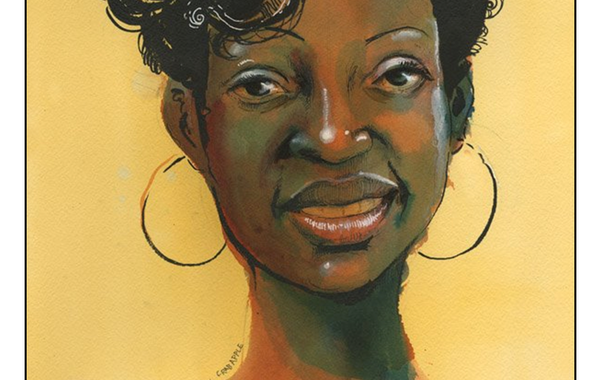[UPDATE: Marissa Alexander was freed February 2017!]
By Kerry McLean, Anti-Sexism Committee Chair
A miscarriage of justice has occurred in Florida. You might be wondering which instance I am referring to. From hanging chads to the murder of Trayvon Martin, Florida has developed a reputation in the US and abroad as a place where injustice goes unchecked.
At the moment I refer to the case of Marissa Alexander. In Marissa’s case the person that was abused is the person that was punished. Marissa, an African American mother of three from Jacksonville, had been married to a man that has a record of abusing her and other women. In 2010, after firing one warning shot in self-defense, Marissa was arrested, convicted of aggravated assault with a deadly weapon and sentenced to 20 years in prison. No one had been injured by her warning shot. After an international advocacy campaign was launched, led primarily by the group Free Marissa Now, Marissa Alexander was granted a new trial. Bizarrely, Florida prosecutor Angela Corey threatened to put Marissa behind bars for 60 years if she was found guilty after her second trial. Under the helm of new counsel, Marissa was granted a new trial.
Marissa eventually pleaded guilty in November 2014, which she had refused to do during her first trial. From the time of her arrest to her release into house arrest, Marissa spent almost 1,100 days behind bars. She missed the first two years of her newborn’s life. She is under house arrest for the next two years. She now has a criminal record. Marissa was not only abused by her ex-husband; she was abused again by a racist and sexist system.
According to US Department of Justice statistics, African American women experience intimate partner violence at a rate 35% higher than white women, and 25% higher than women of other races. Black women who survive intimate partner violence also experience criminalization in connection with their abuse at a higher rate than white women. A study of mandatory arrests for domestic violence conducted in New York by the Urban Justice Center included situations where female survivors of domestic violence were arrested along with their abusive partner because of actions the women took in self defense (dual arrest), or arrested because of a false or exaggerated complaint made by their abuser (retaliatory arrest). For dual and retaliatory arrests, the study found that nearly 70% of the female survivors of violence arrested were African American or Latina, a significant percentage of whom were low-income. It is as if law enforcement and the courts do not regard Battered Women’s Syndrome or basic principles of self-defense as applicable to these women. In her 1991 essay, Rethinking Battered Women’s Syndrome: A Black Feminist Perspective, Sharon Allard offers an explanation: racial and gendered stereotyping of white women as “good,” “passive” and “gentle” affords them sympathy from the public and courts, whereas Black women, stereotyped as angry and aggressive, do not receive sympathy. I worked with Free Marissa Now, a coalition which comprises over 100 organizations, and proposed to the NLG that we join the coalition. In my capacity as Chair of the NLG’s Anti-Sexism Committee I served as the Guild representative to the coalition for about two years, traveling to Jacksonville twice to connect with community leaders and to do work with the media. Free Marissa Now intends to continue working on policy to address the criminalization of survivors of domestic and sexual violence.
Marissa Alexander’s case is yet another reminder that there is still so much to do to reform our legal system. Mandatory minimum sentencing must end. There must be a zero tolerance policy for any hint of racial and gender bias in the prosecution and adjudication of cases. In addition, laws such as the Violence Against Women Act (VAWA) must be strengthened. Moreover, the United States ratification and implementation of the Convention to Eliminate All Forms of Discrimination Against Women (CEDAW), a treaty that offers powerful protection of the rights of women, is decades overdue. ■
Featured Image: Free Marissa by Molly Crabapple via freemarissanow.org

